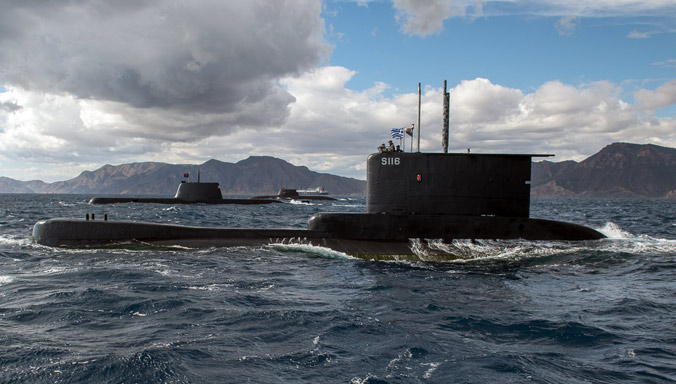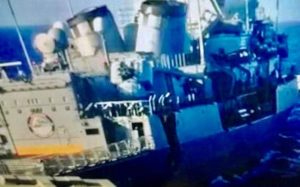Why is the above relevant to NATO? All three countries are NATO members and therefore ostensibly allies. Yet, on a technical level, NATO’s Article 1 binds the members to peacefully solve any disputes with other states and not engage in violence or the threat of violence.
In the case of the Mediterranean dispute, Turkey has trampled on Article 1 multiple times. The most blatant violation came in June 1995, when the Grand National Assembly of Turkey (the country’s parliament) passed a resolution authorizing the Turkish government to declare war on Greece should Greece extend its territorial waters in the Aegean to 12 nautical miles from its coastline — such an extension is a right and prerogative given to every country by the UN’s Convention on the Law of the Sea (UNCLOS).
Already have an account? Sign In
Two ways to continue to read this article.
Subscribe
$1.99
every 4 weeks
- Unlimited access to all articles
- Support independent journalism
- Ad-free reading experience
Subscribe Now
Recurring Monthly. Cancel Anytime.
Turkey has been in clear violation of the North Atlantic Treaty, NATO’s charter. Nevertheless, NATO’s framework does not provide for a way to effectively address intra-organizational disputes or charter violations. Additionally, under NATO’s Article 5, an attack against one member is an attack against all. What will happen if the attack originates from one member of the Alliance against another? Again, the Treaty is silent.
Article 12 does provide for a method to review the North Atlantic Treaty, something which could theoretically rectify these legal shortcomings. Yet, Article 12’s implementation requires the unanimous consent of the North Atlantic Council in which each NATO member participates. Thus, reaching an agreement on the Treaty’s review will be nigh impossible given the situation.
The shortsightedness of the Treaty’s drafters is reflected in the fumbling and anemic reaction of Jens Stoltenberg, NATO’s Secretary-General, in trying to resolve the dispute. Demonstrating his frustration with NATO, Greek Prime Minister Mitsotakis, decried the Alliance’s equidistant attitude.
Some of NATO’s members have been attempting to diffuse the situation: Germany has been trying to mediate, but it lacks the experience to do so and its credibility in Greece is tarnished over Germany’s appeasing attitude towards Turkey and its close trade relationship with it. Turkey is one of the main buyers of German armaments and is scheduled to receive six Type 214 attack submarines. If the delivery materializes the naval balance in the Aegean will shift.
Complicating the situation further is Turkey’s strained relationship with the U.S. Besides attacking America’s Kurdish allies in Syria, Turkey infamously purchased the S-400 missile defense system from Russia; this led to its expulsion from the F-35 program. Furthermore, Turkey’s ties with Hamas, a designated terrorist organization, are being strengthened: President Erdogan even hosted a Hamas delegation that included Hamas’s deputy chief Saleh al-Arouri, a wanted terrorist. Currently, there is significant anti-American sentiment in Turkey.
In his final NATO meeting as U.S. Secretary of State, Mike Pompeo, harshly rebuked Turkey and called it out for undermining NATO’s stability. The American legislature also appears to have had enough. NDAA 2021 will make sanctions on Turkey over its purchase of the Russian S-400 mandatory as per the Countering America’s Adversaries Through Sanctions Act (CAATSA). The sanctions are to be imposed within 30 days of the Act’s signing.
Yet make no mistake: The fractures in NATO’s southern flank are not of a legal or political nature; thus they cannot only be addressed as such. Rather, they are geopolitical. Resultantly, they affect the core of the transatlantic alliance. An armed conflict between NATO members would extinguish any semblance of credibility, which NATO might still have, by irreparably fracturing the alliance from within. This will only benefit outside actors, primarily Russia.












COMMENTS